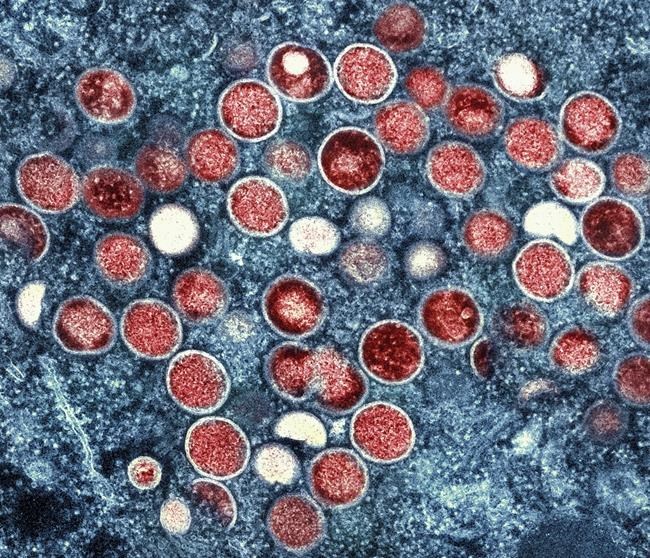TORONTO — Ontario's chief medical officer of health says monkeypox activity in the province has peaked.
Dr. Kieran Moore says the province peaked in total number of active cases the week of July 15, when roughly 16 to 18 cases a day were being identified through PCR testing, while now that is down to only about one a day.
Moore says most of those new cases are travel-related, particularly from American hot spots, rather than people acquiring an infection within Ontario.
He says Ontario has immunized 32,175 people against monkeypox and is waiting for the National Advisory Committee on Immunization to provide guidance on if and how to start a second-dose strategy.
As of this week, there have been 656 confirmed cases of monkeypox in Ontario.
Monkeypox spreads when people have close, physical contact with an infected person's lesions, their clothing or bedsheets, and symptoms can include rash, swollen lymph nodes and fever.
Ontario's progress is remarkable, Moore said, and the province has seen an absolute plateau.
"To me, risk has diminished dramatically in Ontario," he said in an interview.Â
In its latest report released Wednesday, Public Health Ontario said there were 656 confirmed cases of monkeypox in the province as of the previous day, an increase of 25 from the week before.
The agency said 484 of the confirmed cases, or about 74 per cent, were in Toronto, and all but five cases were reported among males. The average age of all confirmed cases in the province is about 36, and confirmed cases range in age from under 20 to 74.Â
Public health says 19 people have been hospitalized with the illness in the province and two people have been in intensive care.Â
There are also 10 probable cases in Ontario.
Local public health units and alliances across Ontario have been holding vaccination clinics over the past few months for those the province has deemed at high risk of contracting monkeypox.
Moore said he has great appreciation for the work the Gay Men's Sexual Health Alliance has done, and for everyone who was at risk who got vaccinated or got tested for symptoms.
"I think, in a remarkably short period of time, we've been able to limit the spread of this virus in Ontario," he said. "I just can't thank all those involved (enough) as it's clearly been successful for Ontario."
The province expanded eligibility for the monkeypox vaccine in August to include a broader segment of the LGBTQ population as well as sex workers.
Until then, the priority group for the vaccine was gay, bisexual and other men who have sex with men who met certain criteria.
Some advocates have criticized the strategy for not including people experiencing homelessness, arguing the population disproportionately overlaps with the LGBTQ community and sex workers.
Public Health Ontario has said that most cases are among men who report intimate contact with men, but it said anyone can get monkeypox.
The monkeypox disease comes from the same family of viruses that cause smallpox, which the World Health Organization declared eradicated around the globe in 1980. Smallpox vaccines have proven effective in combating the monkeypox virus.
This report by The 91Ô´´ Press was first published Sept. 16, 2022.
Allison Jones, The 91Ô´´ Press



